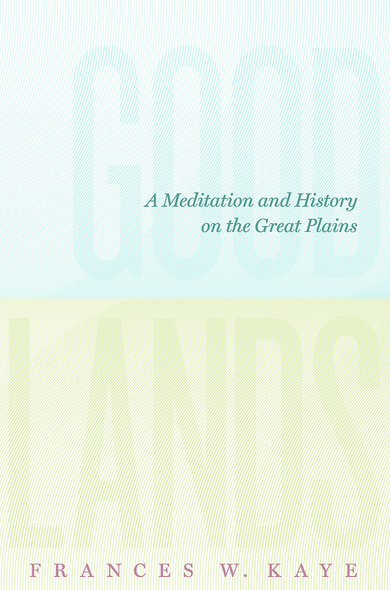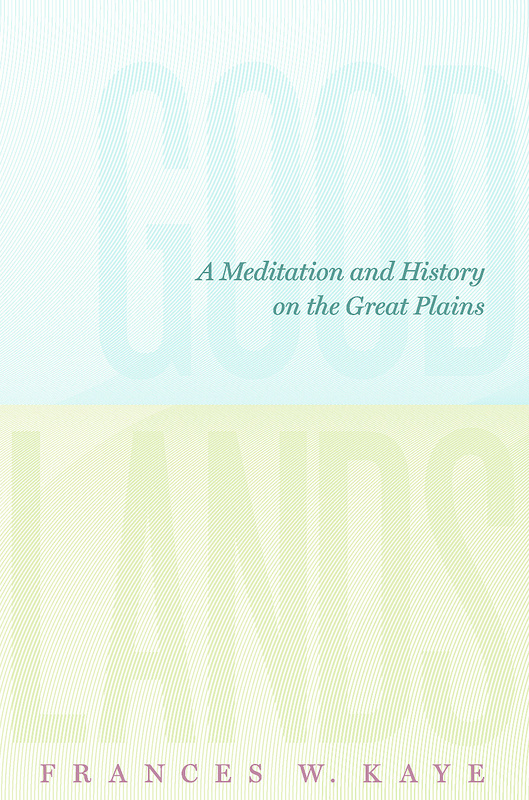Goodlands
A Meditation and History on the Great Plains
Amer-European settlement of the Great Plains transformed bountifulNative soil into pasture and cropland, distorting the prairie ecosystemthat the peoples who originally populated the land had long understoodand were able to use wisely. Settlers justified this transformationwith the unexamined premise of deficiency, according to which the vastarea of the Great Plains was inadequate in flora and fauna and lackingin the advances of modern civilization.
Drawing on history, literature, art, and economic theory, Frances W.Kaye counters the argument of deficiency, pointing out that, in itsoriginal ecological state, no region can possibly be incomplete.Goodlands examines the settlers’ misguided theory,discussing the ideas that shaped its implementation, the forces thatresisted it, and Indigenous ideologies about what it meant to make gooduse of the land. By suggesting methods for redeveloping the GreatPlains that are based on native cultural values, Kaye points the way toa balanced and sustainable future for the region in the context of achanging globe.
Kaye’s work is innovative, transnational, and felicitously written by a renowned scholar of both Canada and the United States.
Introduction | 1
1. A Unified Field Theory of the Great Plains |17
2. Exploring the Explorers | 45
3. Spiritual and Intellectual Resistance to Conquest, Part1: Custerand Riel | 63
4. Spiritual and Intellectual Resistance to Conquest, Part2:Messianism, the 1885NorthwestResistance, and the 1890Lakota Ghost Dance| 79
5. Spiritual and Intellectual Resistance to Conquest, Part3: JohnJoseph Mathews’ Wah’Kon-Tah and John G. Neihardt’sBlack Elk Speaks | 111
6. Intellectual Justification for Conquest: ComparativeHistoriography of the Canadian and US Wests | 127
7. Homesteading as Capital Formation on the Great Plains | 143
8. The Women’s West | 167
9. And Still the Waters | 185
10. Dust Bowls | 205
11. Mitigating but Not Rethinking: George W. Norris, Tommy Douglas,and the Great Plains | 217
12. Planning and Economic Theory | 243
13. Mouse Beans and Drowned Rivers | 265
14. Oil | 275
15. Arts, Justice, and Hope on the Great Plains | 291
Conclusion | 319
Notes | 333
Credits | 365
Index | 367





